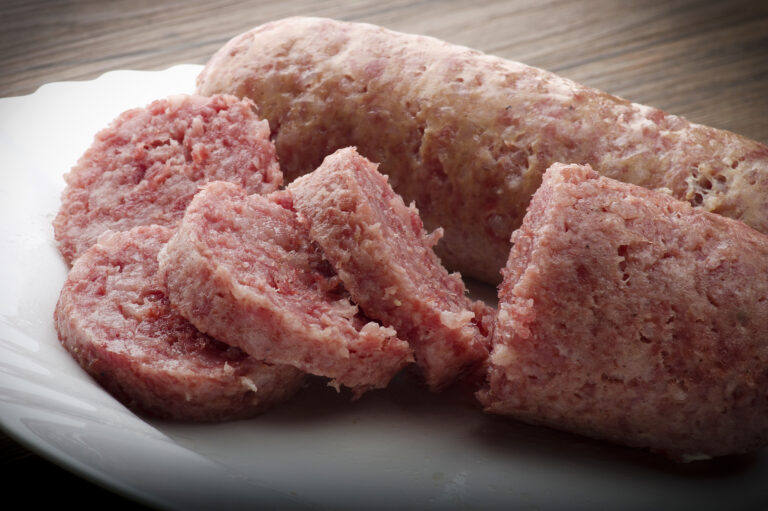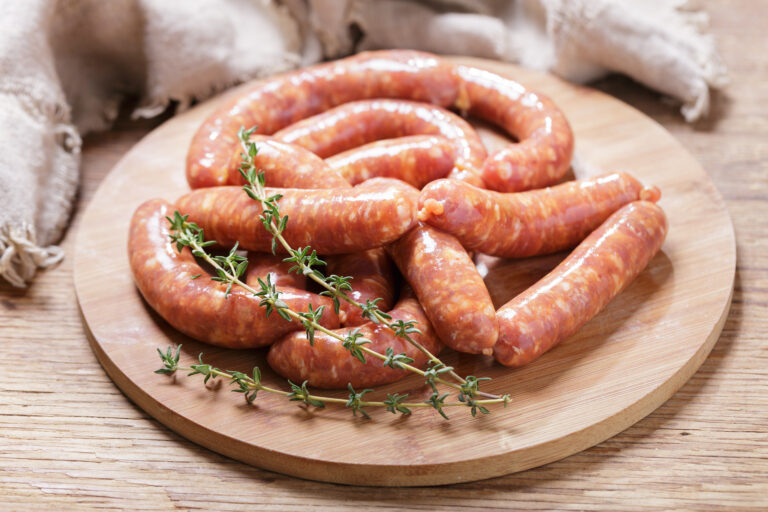5 Homemade Sausage Casings to Perfect Your Recipe
Understanding the types of homemade sausage casings is crucial for perfecting your recipe. From natural to synthetic options, choose the right casing for flavor, size, and cooking method to craft delicious sausages.
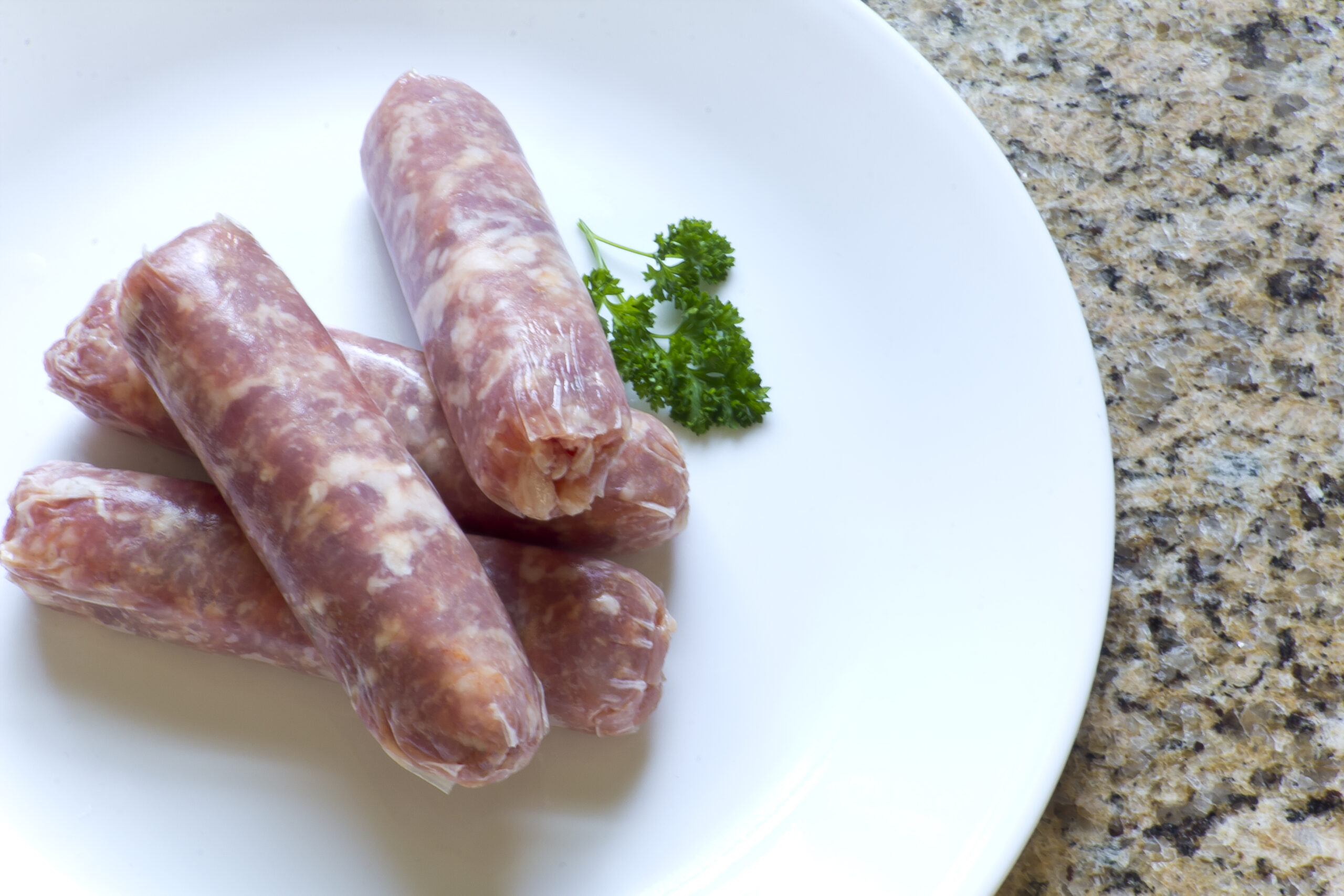
Making your own sausage lets you control every ingredient, but choosing the right casing can make or break your culinary creation. From natural to synthetic options, understanding the types of homemade sausage casings is key to perfecting your recipe.
Disclosure: As an Amazon Associate, this site earns from qualifying purchases. Thank you!
Natural Sausage Casings
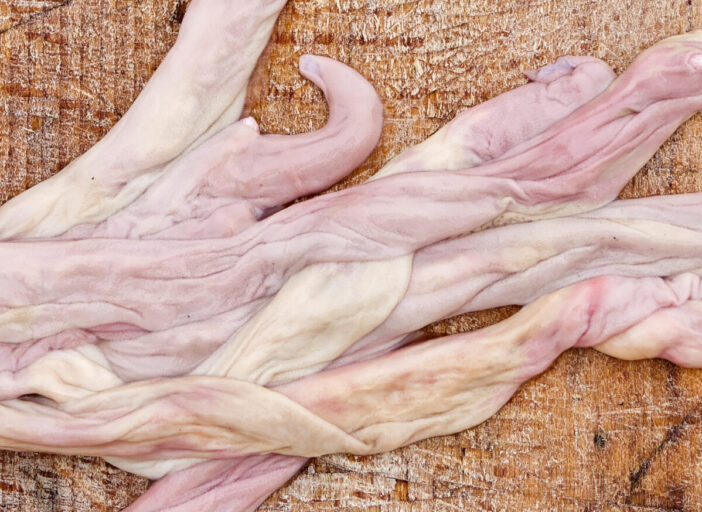
Natural sausage casings give your homemade sausages a distinct texture and flavor. They also come in different sizes, making them versatile for various sausage types.
Hog Casings: Flavor and Versatility
Hog casings are the most popular choice for homemade sausages. They offer a robust flavor that complements a wide range of recipes. Hog casings are ideal for making sausages like brats, kielbasa, and Italian sausage due to their size and durability.
Sheep Casings: For Smaller Sausages
Sheep casings are perfect for smaller sausages. Their delicate texture makes them ideal for breakfast sausages and hot dogs. Sheep casings are easier to bite through, providing a tender mouthfeel that works wonderfully for these types of sausages.
Beef Casings: For Larger and Tougher Sausages
Beef casings are suited for larger, tougher sausages like bologna and salami. Their thicker walls make them durable enough to handle the curing process essential for these types of sausages. Beef casings provide a firm bite that holds up well over time.
Collagen Sausage Casings
Collagen sausage casings offer versatility and convenience, ideal for various types of homemade sausages.
Edible Collagen Casings: Easy to Use
Edible collagen casings simplify the sausage-making process. Made from beef or pork hides, they’re ready to use right out of the package. These casings provide uniform size and shape, ensuring consistent results. They’re great for fresh sausages like breakfast links, snack sticks, and bratwurst.
Non-Edible Collagen Casings: Structural Benefits
Non-edible collagen casings serve as strong and durable molds, perfect for dry and cured sausages. Typically sourced from animal hides, they maintain shape during the lengthy curing process. Ideal for salami and summer sausage, these casings must be removed before consumption, offering a reliable structure for large-format sausages.
Vegetable-Based Sausage Casings
Exploring vegetable-based sausage casings introduces innovative and plant-based alternatives to traditional ones.
Alginate Casings: A Vegan Option
Alginates come from brown seaweed, offering a vegan and allergy-free option. These casings are perfect for fresh, cooked sausages like breakfast links and hot dogs. They create a smooth, uniform appearance and are excellent for maintaining moisture.
Carrot Fiber Casings: An Emerging Trend
Carrot fiber casings, relatively new in the market, provide a natural, plant-based alternative. Ideal for those looking for an eco-friendly casing, they offer structural support and enhance the nutritional value of your sausages. These casings work well for assorted fresh and cooked sausages.
Synthetic Sausage Casings
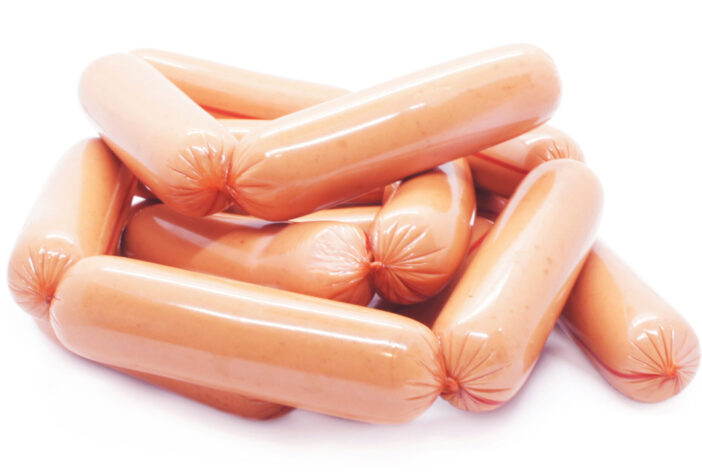
Synthetic sausage casings offer durability and consistency while catering to the specific needs of different sausage types.
Fibrous Casings: Ideal for Large Sausages
Fibrous casings are perfect for large sausages like bologna or summer sausage. Made from a blend of natural and synthetic materials, they provide excellent strength and breathability. You’ll find these casings easy to handle, which makes stuffing and processing large sausages a breeze.
Plastic Casings: Water-Resistant Properties
Plastic casings, known for their water-resistant properties, are great for cooked or semi-cooked sausages. These casings ensure moisture retention, enhancing the sausage’s flavor and texture. You can use them for products like mortadella, where maintaining juiciness is key.
Choosing the Right Homemade Sausage Casing

Your choice of casing can make or break your homemade sausage experience. Here’s what you need to know.
Factors to Consider: Size, Flavor, and Cooking Method
- Size: Select a casing that fits your sausage type. For bratwursts, go with larger hog casings. For breakfast links, choose small sheep casings.
- Flavor: Opt for natural casings if you want added flavor. Collagen casings are flavor-neutral, perfect if you prioritize texture.
- Cooking Method: Use fibrous casings for smoked sausages like bologna. Choose plastic casings for cooked varieties like mortadella, ensuring moisture won’t escape.
Handling Tips
- Handling: Rinse natural casings thoroughly to remove excess salt. Let collagen casings soak for a few minutes but don’t oversoak as they may become brittle.
- Storage: Store natural casings in the fridge, submerged in brine, for up to a year. Keep collagen casings in a cool, dry place to avoid deterioration.
Frequently Asked Questions
What are the different types of natural sausage casings?
Natural sausage casings include hog, sheep, and beef casings. Each type is suited to different sausage types; for instance, hog casings are common for bratwurst and kielbasa, sheep casings are preferred for breakfast sausages and hot dogs, and beef casings are used for larger sausages like bologna.
What are collagen casings used for?
Collagen casings are versatile and can be used for both fresh and dry sausages. They are manufactured from collagen found in animal hides and are known for their consistency and ease of use.
Are there any vegetarian options for sausage casings?
Yes, there are innovative vegetable-based options such as alginate casings made from brown seaweed and carrot fiber casings. These provide a plant-based alternative to traditional animal-derived casings.
What factors should I consider when choosing a sausage casing?
When selecting a sausage casing, consider the size, flavor, and cooking method of your sausage. The type of casing can impact the final texture and taste, as well as how the sausage is prepared and cooked.
How should natural casings be handled and stored?
Natural casings should be properly rinsed before use to remove excess salt and any undesired odors. They should be stored in a cool, well-ventilated area, or refrigerated if not used immediately. It’s important to keep them moist but not wet to maintain their quality.
Can collagen casings be stored like natural casings?
Collagen casings also need proper storage. They should be kept in a cool, dry place and can be refrigerated to prolong their shelf life. Unlike natural casings, they do not require rinsing but should be kept sealed to avoid drying out.
Why is it important to rinse natural casings?
Rinsing natural casings is crucial to remove excess salt used for preservation and any residues. This process ensures the casings are clean, reducing any off-flavors and making them more pliable for stuffing sausages.


